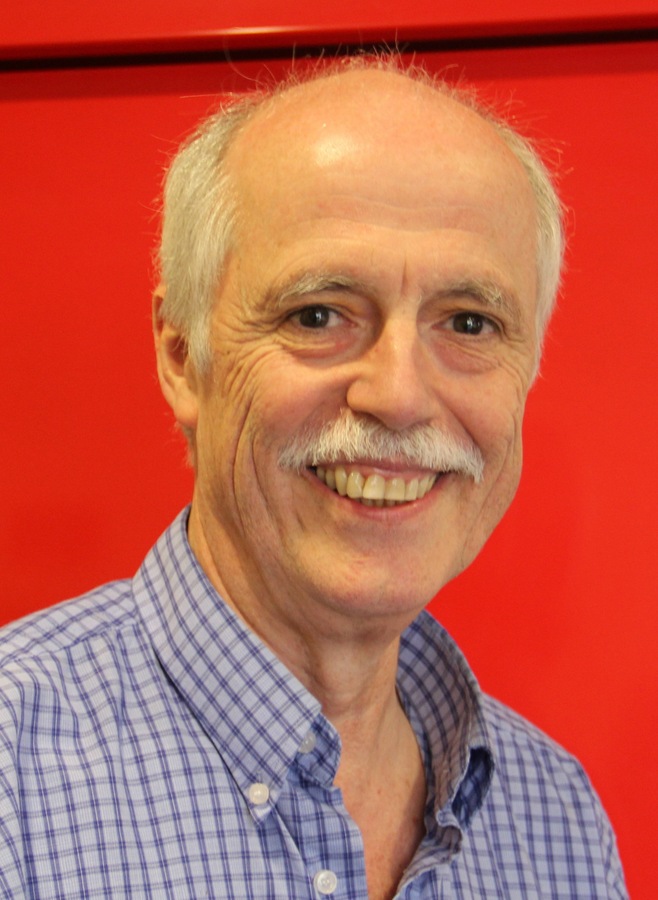
In a world where humans regularly live to 120, retirement might occur at 105. Other people might retire at 65 then return to school and prepare for a second more public service-oriented career. “Old age” wouldn’t start until 100. We are presently far from that world, but gerontology, the study of aging and the problems of the aged has become a hot field, and a growing number of gerontologists are working to make sure we get there.
At the National Institute on Aging, part of the National Institutes of Health (NIH), a new age-related science, called geroscience, has become increasingly popular. Digital Dying recently spoke with Dr. Felipe Sierra, Director of the National Institute on Aging’s Division of Aging Biology, on the tenets of geroscience, the elderly of the future and what humans might do with an extra forty extra years.
What has changed in recent years when it comes to aging research?
For most of human time aging has been dealt with only at the philosophical level, not as something you can manipulate. But we have known from time immemorial that aging doesn’t happen at the same rate for everybody. Some people at 70 are frail, others are vibrant. In chronological age they are the same, but their physiological age is different. We want to understand the process in enough detail so that we can start thinking about interventions in the way that we age.
What is geroscience?
The main issue in health today is diseases of the elderly, but geroscience doesn’t want to target specific aging conditions, like cancer or dementia or diabetes, geroscience wants to addresses these chronic conditions all at once. We focus on the biology of aging, and how the biology of the old organism affects these diseases. To give you an example, think of cardiovascular issues, everyone talks about cholesterol and high blood pressure however the main risk factor is aging. The Framingham Heart Study has shown that even if you have bad cholesterol, high blood pressure and are obese, your risk of cardiovascular disease is less than if you don’t have any of those things but are 70 years old. So being 70 years old is more dangerous to you than being obese and having high cholesterol. Our interest lies in why that is the case. What is it that changes with age that makes your susceptibility to those diseases so much higher? The term ‘geroscience’ and its basic tenet was actually the work of scientists at the Buck Institute for Research on Aging, and Gordon Lithgow specifically.
Scientists on Longevity Gene: Is DNA of World’s Oldest Humans the Secret to Very, Very Long Lives?
How to actually beat these age-related diseases, are we talking about gene therapy?
We are not going to do gene therapy, we are going to activate genes people already have. We want to understand how the genes work, then look to other mechanisms to control the activity of the genes. The drugs we are developing usually don’t work at the level of the gene, they go for the protein that the gene enables. For example, we have centenarians in good health and it’s their genes that have contributed to that. If we can identify a certain variant of a gene that has contributed to these people becoming centenarians then we can look for a drug that activates that gene. So we use the genetics as a way of discovery, to then see what we have to modify. This isn’t gene therapy, these are pharmacological approaches.
Are there drugs like this under development?
Resveratrol is one. Rapamycin is another, and there are others. But I want to be very clear, rapamycin works in animals, it seems to work against a lot of different diseases and it is a good candidate, but in mice it has some side effects that are very negative. It can make you more prone to diabetes and we certainly don’t want that. Another thing is it induces cataracts, and it also induces testicular atrophy, which at least 50 percent of the population cares about, and we don’t want that either. So while I am very optimistic about these drugs, let’s be clear; we know it in mice, we don’t know it in humans. We can’t test with humans of course, so we use mice, or yeast or worms or flies.
Why can’t a behavioral approach work, like just telling people to eat a good diet?
For a long time we have known exercise and diet fights aging, but those things are not done by most people. Changing human behavior is not easy. For humans, feeding ourselves has historically been difficult, so we evolved this way to get energy where we craze sweets and fats. We are wired to like those things, so it is tough to tell people not to eat those things. If I tell you that chocolate has a very good compound that improves your health, then tell you the same thing about broccoli you will want to eat the chocolate but not the broccoli. This is just human nature. That is just the way we are. What if I tell you that there is a grub with a compound that makes you live longer and you should eat grubs? No, it’s not going to happen.
Seems like a boon to pharmaceutical companies?
We have very few ways available to us to change people’s habits, but it’s not to say it can’t be done. We managed to reduce smoking and most people wear a seat belt in the car and put babies to sleep on their backs. But considering that fast food is so much cheaper, and quite tasty, it will be difficult to change people’s habits. Currently there is a campaign to lower consumption of high-sugar beverages, and it is starting to have an impact, so again, it’s not impossible. The ideal would be to convince people to change their habits, but even if you exercise and eat well, eventually aging catches up with you, and that’s where our work comes in.
Might some people not want to live longer lives?
One misconception about geroscience is that we are just extending the period in which we are frail and sick. If you ask the person on the street they would say, ‘No, I would not like to live to 120.’ They say no because they imagine getting frail in their 60s and 70s then staying frail to 120. But what we are seeing in animal studies is animals live longer in good health, and then have a more rapid death, which is exactly what we want. Would you rather live 80 years and spend the last 10 years sick, or would you rather live 120 years and spend the last 10 years sick? If you know you are going to have health for 110 years I think that puts the question in a very different way. Still, other people say, ‘What am I going to do with 100 years of life?’ To them I say 100 years ago the average age of death was 47. What are we doing now from 47 to 80? Something! So we have already increased the lifespan beyond what was normal, and we like our new long life spans, we like to be vibrant into our 60s and 70s. All we’re saying is let’s increase the lifespan again.
Skeletons found holding hands after 700 years, proving love never dies
What do you think a world in which people regularly lived to 120 years old would be like?
Well for one, we’ll work beyond age 65. Sorry, there is no other way around it. For people like me who love their work, that will not be a problem. But if my job was to sweep the floors of a factory, maybe I would not be so excited. At some point we might need to retrain. If you don’t have family to take care of any longer, you retrain for the things you really like to do. For example, I paint in my spare time and I would like to dedicate more time to painting. Maybe I retire, go back to college and get a degree in art. Other people might want to continue a more public service-oriented career, and take up something like teaching. But I don’t want to go too deep into the social issues, because that is not my specialty. I just think that if we live longer, there is a longer amount of time to do things, and society will have to adjust.
How old are you? And do you have a favorite quote about aging?
I am chronologically 61, in my mind I am 45. As for my favorite aging quote: “Growing up is optional, but growing old is obligatory”.
The next geroscience summit is being planned for October of 2015, and there is a book on the way, too. Stay tuned to the National Institute on Aging’s website for more details.










Eduardo Concha
Even though you are feeling well, a very long pointless life is worst than a brief one. As Hobbes’ Leviathan says, “life of man [used to be] solitary, poor, nasty, brutish, and short.” In those conditions, briefness was a blessing from Mother Nature. If we are able to extend human life, we must fight not only against illness, but give meaning to time in order to make it valuable. Dr. Sierra acknowledges this at the end of the interview.
“So, uh, what’s the worst part about being old, Alvin?
Alvin Straight: Well, the worst part of being old is rememberin’ when you was young.”
David Lynch – The Straight Story
Juano
Very intersting, but think that I’ll be in trouble from 60 to 70´s “The Framingham Heart Study has shown that even if you have bad cholesterol, high blood pressure and are obese, your risk of cardiovascular disease is less than if you don’t have any of those things but are 70 years old”… so let’s party from 60 to 70…Great Article.-